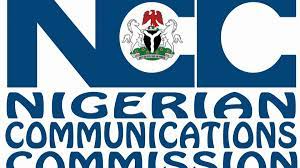University Don, Dr. Falade Adesola, former HOD of the Computer and Information Sciences Department of Trinity University, commended the Nigerian Communications Commission (NCC) for its regulatory excellence over the telecoms sector.
In an OpEd titled ‘The NCC, Telcos and the Tariff Discourse’, Dr. Falade examined the Nigerian telecoms sector in connection to the role of the NCC, while interrogating issues in the sector.
He wrote, “The telecoms sector in Nigeria is viewed by some as a model of regulatory excellence. Other African countries often visit Nigeria to study the sector, aiming to understand the regulatory framework established by the NCC. This regulatory excellence is evident in the growth and success of the telecoms industry, which currently contributes over 16% to Nigeria’s GDP.
“The telecoms industry in Nigeria is a source of pride for everyone; it’s arguably the only sector that can be considered a successful model of liberalization in the country.”
Dr. Falade commended the new Executive Vice Chairman, Dr. Aminu Maida, for his efforts to reposition the industry. “While the focus in the past has always been quality of service (QoS), the direction under the new EVC has shifted to quality of experience (QoE), which is more customer-centric and places more demands on the telecoms operators,” Dr. Falade wrote.
Furthermore, Dr. Falade wrote, “Beyond advocacy, the visible steps taken so far by the NCC under Dr. Maida, aimed at safeguarding telecom infrastructure, deserve commendation. The recent incident of multiple fibre cut, which resulted in widespread network disruptions for one of the major telecoms operators, prompted swift action from the EVC.
“His advocacy for stricter penalties against perpetrators led to moves by the government to criminalize cable damages and vandalism of telecoms infrastructure. This proactive stance not only deters future recklessness but also instills confidence among telecoms operators regarding the safety of their investments.”
Dr. Falade touched on the economic challenges in Nigeria within which telcos operate, necessitating the calls for tariff review by the Association of Licensed Telecoms Operators of Nigeria (ALTON). The NBS explained that the rise in food inflation on a month-on-month basis is due to an increase in the average prices of bread and cereals, potatoes, yams, and other tubers, fish, coffee, tea, and cocoa.
Dr. Falade stated, “These developments paint a bleak picture of the current economic situation in Nigeria, and amid all these, discourse around telecoms tariff review is beginning to take centre stage, drawing attention to the need for a delicate balance between economic realities, quality of experience, which impacts directly on customer satisfaction, and telecommunications industry sustainability.”
For over a decade, major telecom operators like Airtel, MTN, and GLO have maintained their pricing structures, despite mounting challenges such as currency devaluation and inflation, while other sectors have adjusted prices to cope with economic fluctuations.”
With the conversations around the request of ALTON for tariff increase to ease the pressures on the telcos, stakeholders in the sector await a response from the NCC.
Yahoo Mail: Search, organise, conquer


